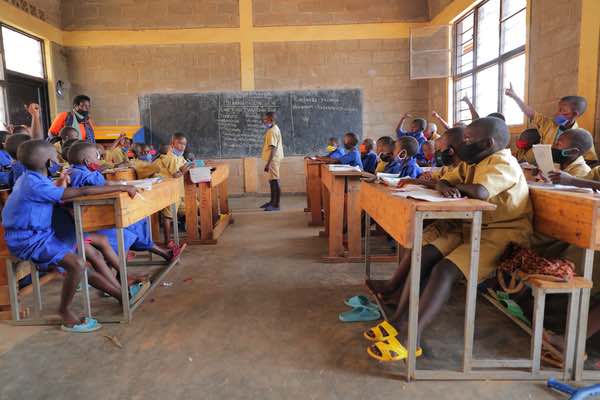
The Government of Federal Republic of Germany has announced a grant amounting to USD 940,000 to UNHCR, the UN refugee agency, to boost the refugee response in Rwanda.
Mrs. Aissatou Ndiaye, the UNHCR Representative to Rwanda, applauded the government of Germany for its continued support in providing humanitarian assistance to refugees in Rwanda.
“This funding comes at a critical time with the increasing cost of living taking a heavy toll on refugee populations,” said Mrs. Ndiaye.
“Support from Germany will help strengthen UNHCR’s humanitarian assistance and restore hope for people forced to flee as we pursue durable solutions,” she concluded.
Through this flexible contribution, UNHCR will be able to support the primary education of Congolese and Burundian refugee children. More refugees will also have access to secondary and tertiary education, medical care and buy clean fuel for cooking.
UNHCR will use the funds to provide over 6,000 refugee households across camps in Rwanda with cash grants to purchase clean cooking fuel contributing to efforts to reduce deforestation and not rely on firewood. In addition, the funding will enable UNHCR and partners to refer 12,500 refugee patients from health centers in camps to hospitals and pay for urgent medical treatment.
As the second largest bilateral donor to UNHCR, Germany has provided over EUR 80 million in 2022 to support refugees and displaced populations in the East Africa and Great Lakes region, including in Rwanda.
“Germany is committed to supporting UNHCR increase resilience among displaced populations, to help refugees rebuild their lives and ensure the most vulnerable people are protected. In Rwanda, this funding is designed to aid both Burundian and Congolese refugees, especially women and girls, and maintain assistance for refugee populations,” stated Dr Thomas Kurz, Ambassador to Germany in Rwanda.
Currently, Rwanda hosts over 127,000 refugees mainly from the Democratic Republic of Congo and Burundi. Around 90% of them live in refugee camps across the country. (End)
